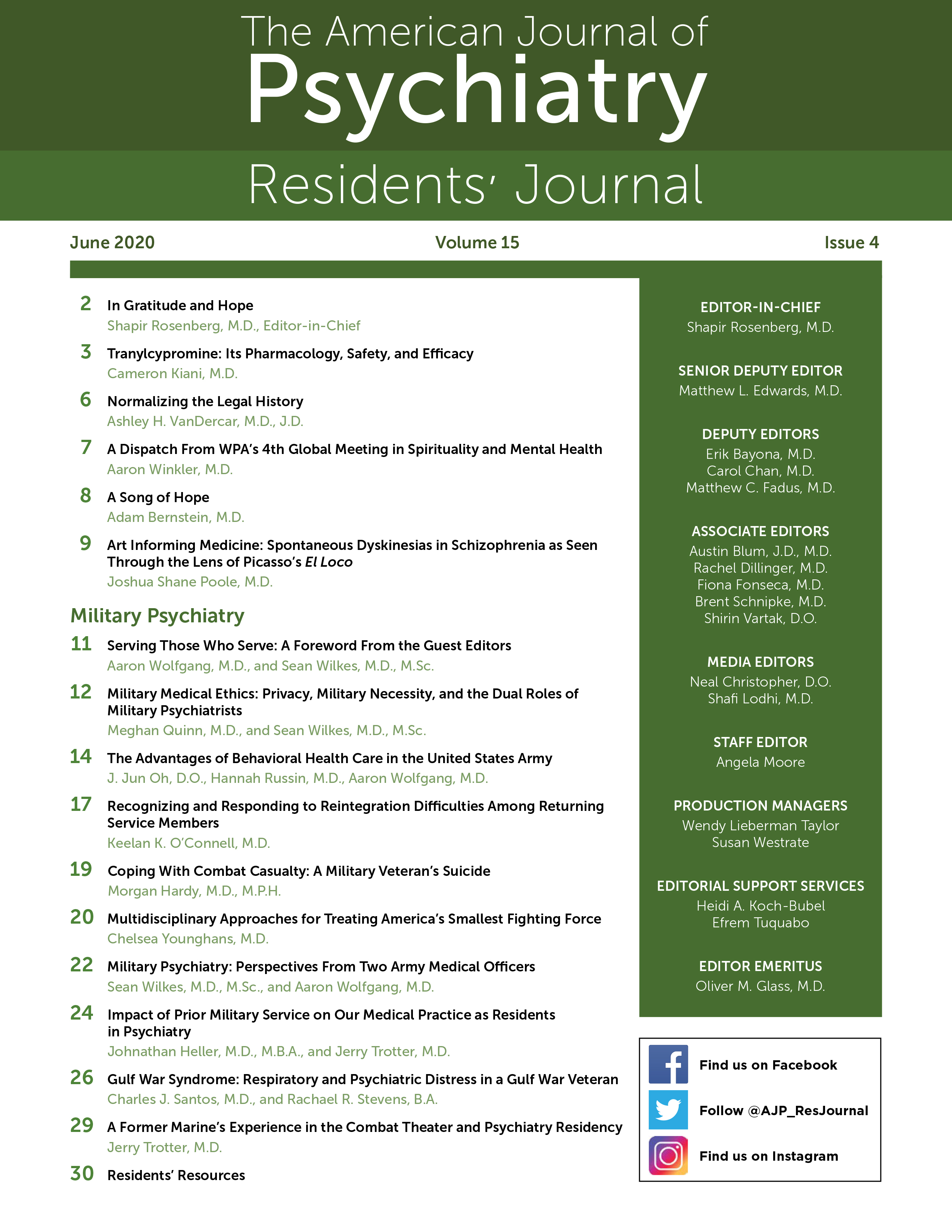A Dispatch From WPA's 4th Global Meeting in Spirituality and Mental Health
In December 2019, hundreds of psychiatrists, psychologists, chaplains, and other allied professionals convened in Jerusalem for the World Psychiatric Association's (WPA) 4th Global Meeting in Spirituality and Mental Health. Prior meetings were conducted concurrently with the WPA annual meeting. This was the first held as a stand-alone conference. Turnout exceeded expectations, and presenters hailed from 35 different countries.
Religion, spirituality, and psychiatry have densely interwoven histories. Even before psychiatry was regarded as mainstream medicine, treatments such as Mesmer's "animal magnetism" attempted to glean scientific components from religious practices such as exorcism. In more modern times, Freud famously broke with Jung, who wanted to incorporate spiritual elements into the work of psychoanalysis. In recent years, a movement to discuss this intersection has gained momentum. In the United States, the American Psychiatric Association included a module on Spirituality, Religion, and Moral Traditions in the supplementary modules to the Core Cultural Formulation Interview (1) of the DSM-5. In other countries, a number of national psychiatric associations have adopted official positions. Internationally, the WPA formed its Section on Religion, Spirituality and Psychiatry. In 2015, an evidence-based and well-sourced position statement (2) was officially ratified by the WPA.
The WPA's 4th Global Meeting included many stimulating presentations. The SPIRIT program at Boston's McLean hospital is facilitating spirituality groups on a majority of the inpatient units, with impressive buy-in from staff and gratitude from patients (3). Essam Daod, a child psychiatrist based in Haifa who cofounded Humanity Crew, talked about using narrative reframing and community building to help refugees landing on the Greek island of Lesbos (4). In Israel, three "Soteria" homes have been able to divert more than 250 people en route to inpatient psychiatric units to warmly furnished, naturally lit homes where there are no physical restraints and staff are trained in "being with" those who are suffering (5). A number of talks explored how the "mystical" component of hallucinogenic experience may mediate the benefit of MDMA and psilocybin used in treatment-resistant depression.
The conference highlighted the academic, evidence-based research taking place around the world to unpack and harness the overlap between spirituality and psychiatry. For those seeking to engage, the WPA Congress's organizing committee considers nominations from trainees to serve on the program committee for the 2020 conference in Bangkok.
1. Supplementary Modules to the Core Cultural Formulation Interview (CFI). Washington, DC, American Psychiatric Association. https://www.psychiatry.org/File%20Library/Psychiatrists/Practice/DSM/APA_DSM5_Cultural-Formulation-Interview-Supplementary-Modules.pdf Google Scholar
2. : WPA position statement on spirituality and religion in psychiatry. World Psychiatry2016; 15:87–88 Crossref, Google Scholar
3. : Spiritual psychotherapy for inpatient, residential, and intensive treatment. Am J Psychother2019; 72:75–83 Crossref, Google Scholar
4. : After Fleeing War, Refugee Children Face Lasting Psychological Trauma. National Geographic (Epub June 20, 2018). https://www.nationalgeographic.com/news/2018/06/refugee-mental-health-trauma-children-lesbos-greece-crisis-world-refugee-day-culture/. Accessed March 11, 2020 Google Scholar
5. What Is a Soteria House? Jerusalem, Soteria Israel. https://soteria.org.il/soteria-israel (Accessed March 11, 2020) Google Scholar



